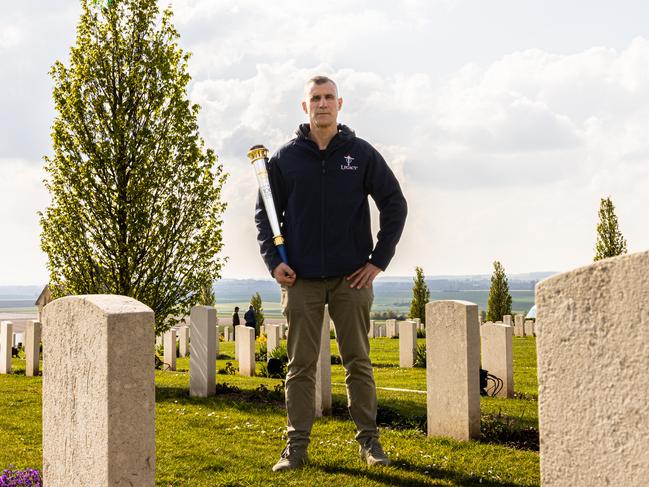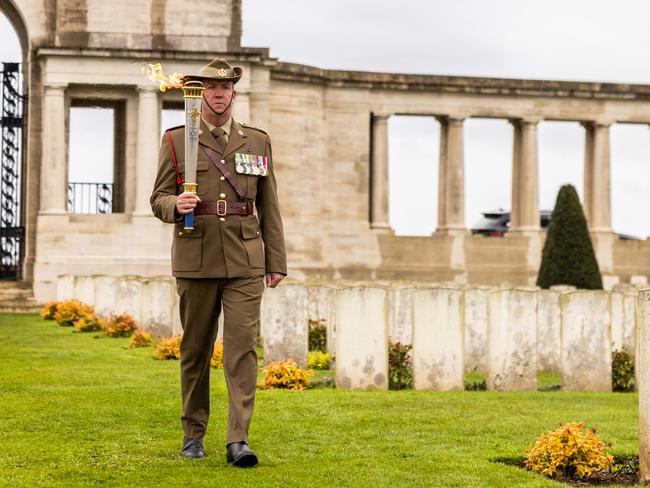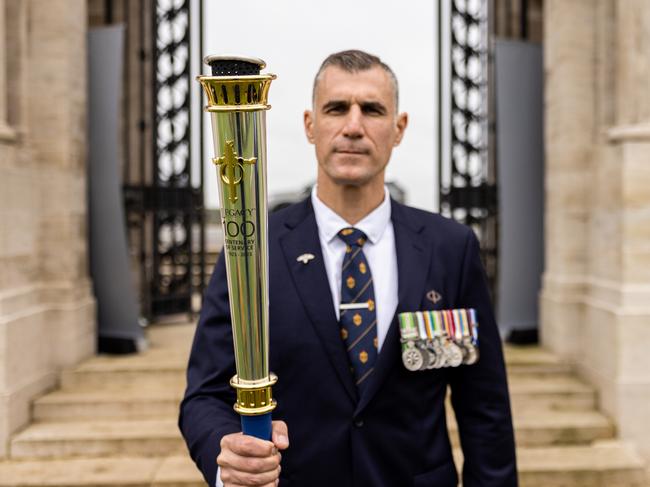Legacy launches new chapter in a proud history of helping Aussie veterans’ families
Demand for a charity that was launched to support war widows from two World Wars has changed. Now families are needing support.
National
Don't miss out on the headlines from National. Followed categories will be added to My News.
Exclusive: This week Australia will pause to commemorate the start of the Anzac story – but there’s a new chapter being written that we cannot afford to ignore.
That is the message from those who have moved from front line service to dealing with the aftermath of conflict, where gripping tales of combat and courage give way to families facing life without a loved one, or with a provider so impacted by service they simply cannot cope.

“It has really changed,” says Afghanistan and East Timor veteran Ken Tsirigotis, now with the charity Legacy.
“We used to have so many World War Two widows needing our help – in fact not that long ago at all we were even still caring for younger wives of soldiers from World War One.
“Now there are fewer of those war widows, but overall the numbers we assist aren’t going down because instead we have whole families reaching out – for example mothers and children whose husbands and fathers have been in places like Iraq or Afghanistan.”

Tsirigotis spoke out while visiting the WW1 battlefields of the Western Front, where Legacy launched its Centenary Torch Relay, an epic five-month event that aims to raise awareness and funds.
A boots-on-the-ground guy whose 22 years in service included time as a reconnaissance specialist and parachutist, like most involved in the charity Tsirigotis is by nature modest but understands, in his position as chief operating officer of Legacy’s Melbourne branch, that it is time “to get the word out there”.
“It’s not just families who have lost someone,” he said.
“If the breadwinner is still alive but incapacitated that can bring its own challenges – they may feel too proud or worried to ask for help or accept it.”
That is a story older than Legacy. Many men returning from the First World War, as with all conflicts, were dreadfully traumatised.
Yet while more aware than most of the horrors of war, Tsirigotis and his colleagues see much to value in the traditional Anzac story and are as fascinated as the rest of us in its oddities.
Stopping at the grave of one digger at the Australian National Memorial outside Villers-Bretonneux, Tsirigotis shares a story about the man: Henry James Gibb.

“It is believed he lied about his age to join up,” he says.
“We’ve heard about boys raising their age to get in, but he went the other way, saying he was in his 40s when he was in his 60s.”
Gibb, of Stanmore in NSW, was a veteran of the Boer War and reputedly was “fit as a bull” when the Great War came around.
He may have fooled the enlistment officers but not his 14th Battalion comrades, who are on record after his death – from a shell burst while on a carrying party in June 1918 – as saying he was in his 60s and that he was known as “Dad”.




